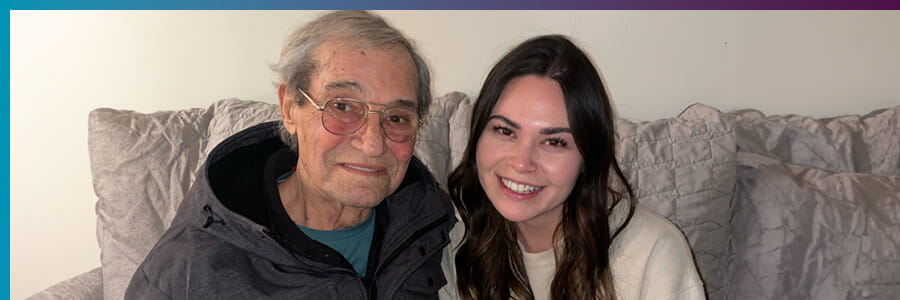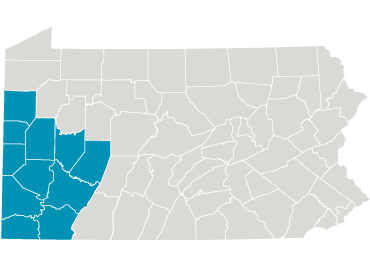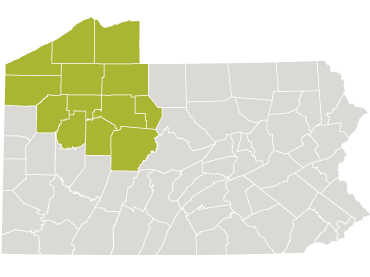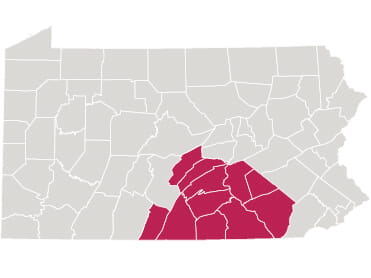Paul and Takara share the same birthday. For years, they would go on birthday adventures at home in Hawaii: diving with manta rays, horseback riding, ziplining, and more.
But the greatest gift they shared didn't happen on their birthday.
Paul, the best friend of Takara's father, and his wife Peggy became Takara's "Uncle Paul and Aunt Peggy" when she was little.
"Peg and I don't have any children, so she has definitely been like a child to us," Paul says.
"We watched her grow up. She's grown up into quite the woman and quite the young lady."
About eight years ago, in his late 60s, Paul began experiencing health problems. Years of alcohol use — along with exposure to Agent Orange while serving as a paratrooper during the Vietnam War — damaged his liver. He stopped drinking, but the damage was already done.
Paul had gone to the VA in Lebanon, Pa., and a doctor took him under his care and gave him some advice.
"We went over to Pittsburgh one time with high expectations," Paul says.
Paul and Peggy moved to Pennsylvania after this visit for access to better health care. He was receiving care through the Pittsburgh VA Medical Center, getting fluid drained every month because he developed severe ascites.
Eventually, Paul learned he would need a liver transplant.
"The criteria for when you are added to the liver transplant waiting list is on a scoring system. " Peggy says. "Even though he looked like he was dying, his numbers didn't facilitate having a transplant."
Hospitals and transplant centers use the Meld score, which estimates the chance of surviving within the next three months.
The Pittsburgh VA Medical Center only performs deceased-donor transplants. They referred Paul and Peggy to UPMC for a living-donor liver transplant (LDLT) evaluation.
Takara, who had moved to Portland, Ore., visited Paul and Peggy in Pennsylvania and was surprised to see how sick Paul was.
"He was just so weak and didn't have the energy for much of anything," she says. "He still had the youth, the person that I remember growing up. But, physically, it was written all over his face. His skin color, I've never seen someone look so ill."
Takara learned Paul needed a liver transplant. She didn't know anything about living donations, but when Peggy gave her some of the information from UPMC, she decided to pursue testing.
“I was like, 'I think I'm healthy, it's worth a shot just to see,'" she remembers.
Takara went through donor testing beginning in fall 2021. By late January 2022, she learned she was a candidate for living donation.
"(Paul and Peggy) called me, and I remember they both kind of told me," Takara says. "I literally started crying. It was just like, 'Who would have ever thought?'"
While Takara says she was fully on board with the transplant, Paul says he was worried on her behalf.
“I didn't want anybody being in danger," he says. "That was the thing that worried me the most because it's still an operation. No matter what anybody says, it's still an operation."
But with assurances from Takara and from the UPMC transplant team, they went forward with the transplant.
"I can't even describe how pleased I was with the care that we've gotten through the facilities we've been to, and then especially to UPMC," Peggy says.
The procedure took place in the spring of 2022, and it was a success.
"Seeing him after surgery, it was just like, 'Oh, my gosh, you're like a whole new person,'" Takara says. "I felt like I was looking at a whole new version of him."
After a few months, both Paul and Takara fully recovered from the surgery. Paul and Peggy have traveled throughout their lives, and they hope to do a lot more traveling again.
Paul also had a birthday excursion planned — skydiving — but Takara says she wasn't on board with that one.
As far as becoming a living donor, Takara says even if she hadn't been able to donate to Paul, she would have donated part of her liver to someone else. She doesn't think of herself as a hero, just someone who did what needed to be done.
"I remember telling (Paul), and I truly believe it, that I almost feel like I was put on this earth to solve this problem," she says. "And, so, that's why for me, I don't feel like I did anything out of the norm of my normal life or who I am as a person. I just felt like I was called to do it."
Paul encourages all veterans to "take advantage of what they have earned" to see "your local VA doctor because there are many things available to veterans out there."
At UPMC, Life Changing Medicine means stories of love.
Find UPMC Transplant Services in the Following Regions





















